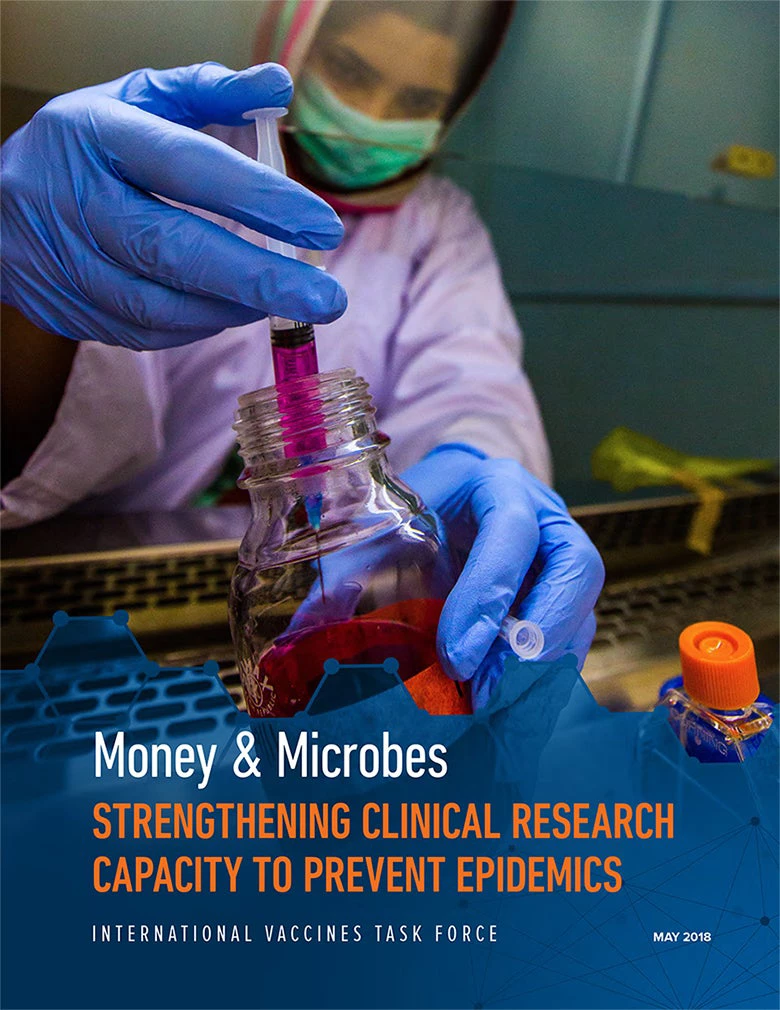Clinical research can save lives. In a world where outbreaks of novel infectious diseases are increasing, we urgently need to speed up the development of effective vaccines, therapies, diagnostics and treatment protocols. The horrific loss of life from the 2014-2015 Ebola outbreak in West Africa is a haunting reminder of what is at stake if we do not move fast enough.
But to do this, we need to bolster the capacity of low- and middle-income countries to conduct clinical trials during epidemics. For the pathogens of greatest concern, the only opportunity to demonstrate that medical countermeasures such as vaccines and therapeutics actually work will be during an outbreak – with all the challenges trying to perform a clinical trial under such conditions necessarily presents for health systems already stretched to the breaking point and beyond.
The importance of building and strengthening this research capacity in low- and middle-income countries has been gravely under-appreciated – not just for its key contribution to pandemic preparedness, but for its wider benefits in promoting and sustaining health improvement more broadly. This matters, because the capacity to conduct clinical research cannot be switched on and off. The capacity will function well in a crisis only if it functions well during “peacetime”.
We can act now to invest in this capacity. The World Bank and the Coalition for Epidemic Preparedness Innovations (CEPI) have co-funded a study, published today as Money & Microbes: Strengthening Clinical Research Capacity to Prevent Epidemics, that has generated a set of actionable recommendations to focus global efforts and facilitate progress in this area.
There are, of course, no easy fixes. The challenges are multi-faceted, and they require a multi-disciplinary approach. We need laws, we need policies, investment from both domestic and international sources, and political commitment. We need coordination between countries, institutions and the public and private sectors. We need to agree on relevant metrics and mechanisms of accountability. We need to scale and join up what is already in place and fill in where there are gaps – whether that is in laboratory systems, biobanking, data management, regulatory capabilities or ethical review systems. Above all, we need to make the case for why making such investments should be a priority and why it is achievable.
It is a priority because unless we invest now, we will fail to build the knowledge base we need not only to save lives in current outbreaks but also to increase our ability to respond to subsequent outbreaks caused by the same pathogen. This would be unforgivably short-sighted, given that we know that epidemics are occurring with increasing severity and frequency.
And it is achievable because there are, already, many promising examples of what can be done. Take, for example, the way in which research has been launched in Nigeria to understand the nature of the current Lassa fever outbreak, as demonstrated by the research priorities developed by the Nigeria Centre for Disease Control working with WHO and other partners. Or consider the work of the East Africa Public Health Laboratory Networking Project to enhance the diagnosis and surveillance of TB and other communicable diseases, which has seen quality improvements and accreditation of labs, among other benefits. In addition, there are a number of other initiatives that, if they were to be mobilized effectively, could also play a significant role in building clinical research capacity, ranging from innovative financing mechanisms to strengthening regional networks.
There is clear momentum and a global commitment to improve our capacity to protect people everywhere from the threat of epidemics. Investing in the clinical research capabilities of low- and middle-income countries now needs to be at the heart of this collective effort.



Join the Conversation